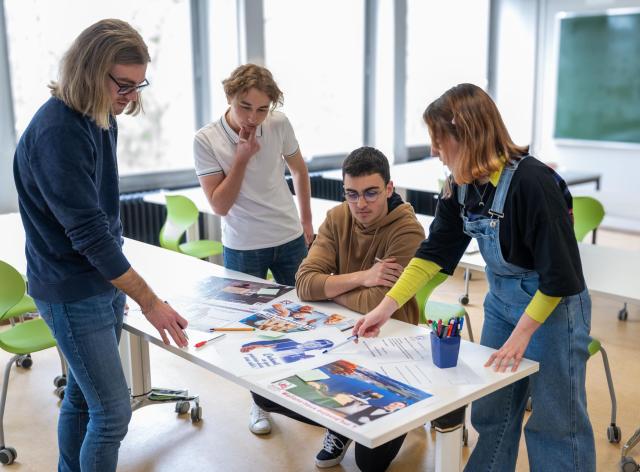The UNamur School of Social Sciences, Politics and Communication brings together teachers and researchers from different disciplinary backgrounds: political science, information and communication, philosophy, sociology and law.
Presentation
The School includes 7 academics, 9 PhD students, 9 researchers and post-docs and 1 administrative staff member. It is responsible for teaching within these disciplinary fields delivered at the Faculty and directs the Bachelor of Political Science and Bachelor of Information and Communication programs. Its members are engaged in research within the Transitions and NADI Research Institutes and around three major themes: digital media & communication, transitions and the age of life, and democratic transformations.
Find out more about the UNamur School of Social Sciences, Politics and Communication
Spotlight
News
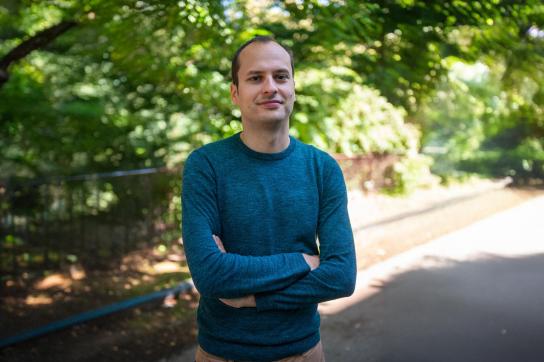
Citizens' assemblies: gimmicks or levers for change?
Citizens' assemblies: gimmicks or levers for change?
For the past fifteen years or so, participatory and deliberative democracy mechanisms have been multiplying: participatory budgets, popular consultations, citizens' panels, and so on. Vincent Jacquet, a political scientist and coordinator of the European research project Citizen Impact (ERC project, European Research Council), studies the impact of these devices from the point of view of governors and citizens.
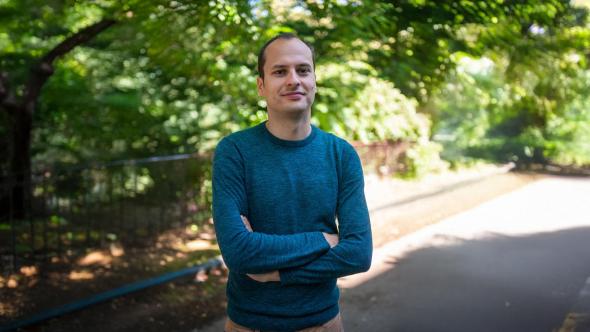
The findings are nuanced: "Unsurprisingly, today's elected representatives are very much rooted in an electoral and representative logic. Many are wary of citizens' ability to get involved beyond electoral processes. Obviously, there are differences between elected representatives and political parties. To simplify, we can say that the further left a party is and the younger its elected representatives are, the more open they will be to extra-electoral mechanisms", explains Vincent Jacquet.
So, the question is whether those in power are really integrating these citizen processes into their political decisions. "In politics, things change slowly. So it's not surprising that we're not seeing major reforms in the short term. But that doesn't mean the results aren't taken into account," nuances the political scientist. In some cases, the recommendations of citizens' assemblies feed into public policy. In others, they go unheeded. He points out, however, that the lack of impact has less to do with a desire for manipulation on the part of elected officials, than with the fact that participation is thought of alongside decision-making circuits.
To strengthen their impact, three levers are identified by the researcher:
- Inscribe assemblies over time to feed public action over the long term.
- Define upstream the timetable and the way in which decisions will be made in relation to citizens' recommendations.
- Guarantee support for the recommendations by politics or civil society.
The Irish example is often cited. Citizens' assemblies paved the way for referendums on marriage for all and abortion. "It was the interaction between the deliberations of an assembly drawn by lot, social mobilization and the organization of a referendum that enabled these reforms to be carried through."
A reminder that these devices do not replace representative democracy, but can enrich it, provided they do not remain at the symbolic stage.
On the same subject
An academic year focused on democracy
Find the speech delivered by Rectrice Annick Castiaux at the 2025-2026 Academic Back-to-School Ceremony.
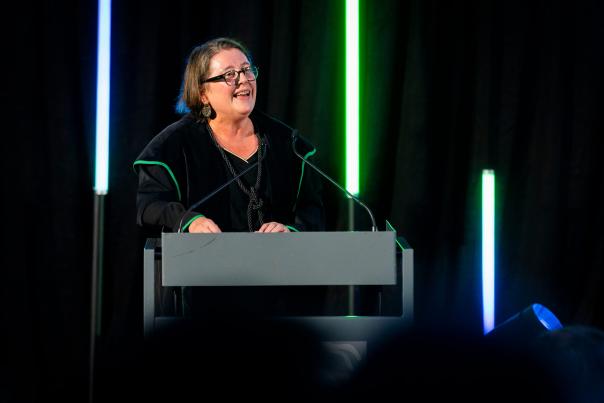
Cet article est tiré de la rubrique "Le jour où" du magazine Omalius #38 (Septembre 2025).
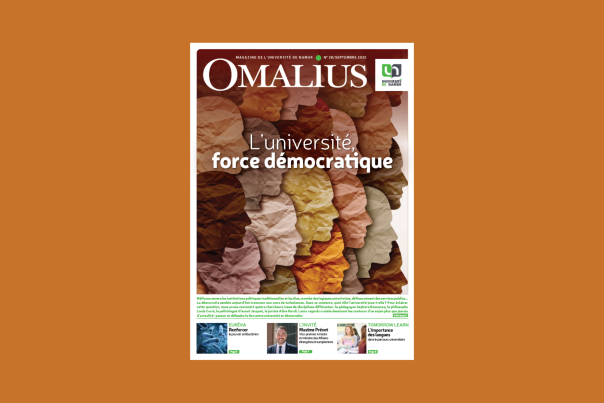

University and democracy: a living, sometimes threatened, link
University and democracy: a living, sometimes threatened, link
Trust of traditional political institutions and elected representatives, rise of authoritarian logics, definition of public services... Democracy today seems to be going through a turbulent zone. What role does the university play in this context? To shed light on this question, we interviewed four researchers from different disciplines: educationalist Sephora Boucenna, philosopher Louis Carré, political scientist Vincent Jacquet and legal scholar Aline Nardi. Their contrasting views sketch out the contours of an issue that is more topical than ever: thinking about and defending the link between university and democracy.

Democracy is by no means a fixed concept. It is the subject of debate, especially today. Louis Carré, Director of the Department of Philosophy and member of the Espace philosophique de Namur (Institut ESPHIN), proposes a three-dimensional definition: a political regime, a state of law and a way of forming society.
.The concept of democracy: between people power and centralization
"Etymologically, democracy is a political regime that consists in giving power to the people," he reminds us. "Our Western democracies today are based on the idea that the people are sovereign, without governing directly. From this arises a tension between ideal democracy and real democracy."Vincent Jacquet, professor in the Department of Social, Political and Communication Sciences and president of the Transitions Institute supports the point: "Democracy is an ideal of citizen self-government, but it is in tension with more centralizing, authoritarian logics. [...] Our political systems are crisscrossed by these different tensions, with both authoritarian logics increasingly present, including in our own country, and logics of participation that are sometimes accompanied by a great deal of hope and disappointment too."
The second pillar according to Louis Carré: the rule of law. Democracy guarantees the fundamental rights of all citizens through the constitution. But here again, beware of paradoxes: "One could indeed imagine laws passed by a majority of representatives or by a referendum, but which contravene fundamental rights" the philosopher stresses. Democracy cannot therefore be summed up by the majority principle alone.
Finally, democracy is also a way of forming society. It is based on real pluralism: diversity of opinions, beliefs and values. "This presupposes the existence of a relatively autonomous public space in the face of the power in place, which at times challenges the decisions taken by the governments that have been elected,"insists Louis Carré.
As such, citizens' distrust of politics is not necessarily a symptom of democratic crisis. It may even be a sign of its vitality, as Vincent Jacquet explains:"The fact that citizens are critical of their government is not necessarily negative because, in a democracy, citizens must be able to control the actions of those in power."
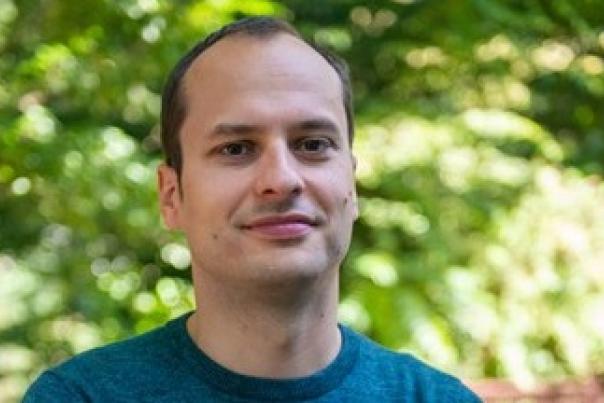
Training the governors... and the governed
In this context, what is the university's responsibility? Louis Carré begins by reminding us of a simple fact: a large proportion of our elected representatives have passed through university benches. But its teaching mission doesn't stop there. "It's about training enlightened citizens, not just rulers. Universities must offer quality higher education, open to as many people as possible", he asserts.
"Democracy does indeed presuppose citizens capable of debating, reflecting, problematizing issues", adds Sephora Boucenna, Dean of the Faculty of Education and Training Sciences and member of UNamur's Institut de Recherches en Didactiques et Éducation (IRDENA). It's all about training reflective minds, capable of questioning their times.
Training reflective teachers for critical citizens
Universities also train those who, tomorrow, will educate future generations: teachers. And here again, democracy is at stake.
"Our mission is to train reflective teachers who, in turn, will teach their students to think critically"insists Sephora Boucenna. This requires in-depth work on analyzing practices, collective construction and learning to debate, from initial teacher training through to in-service training.
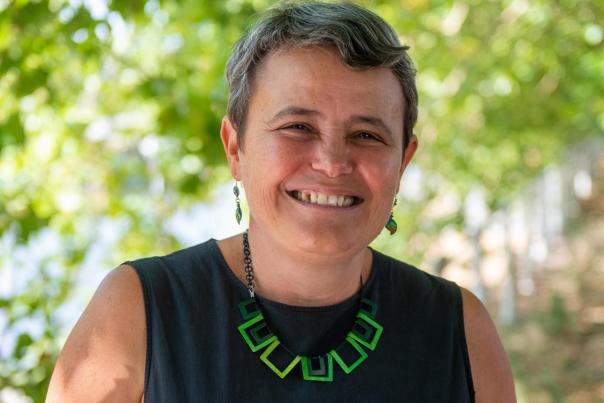
Producing and disseminating knowledge... in complete independence
In addition to teaching, universities also have a research and social service mission. It produces knowledge that can enlighten public policy, but also question it. This critical function presupposes real independence from politics. "To analyze democratic mechanisms with lucidity, including those that governments put in place, the university must retain its freedom of research and speech," insists Vincent Jacquet.
Louis Carré goes further: "Like the press, the university is a form of counter-power in the public space". He also points out that "there is a confusion between freedom of opinion and academic freedom. Academic knowledge goes through a series of verification, experimentation and discussion procedures within the scientific community. This gives it a robustness that is not that of an opinion, a value, a belief."
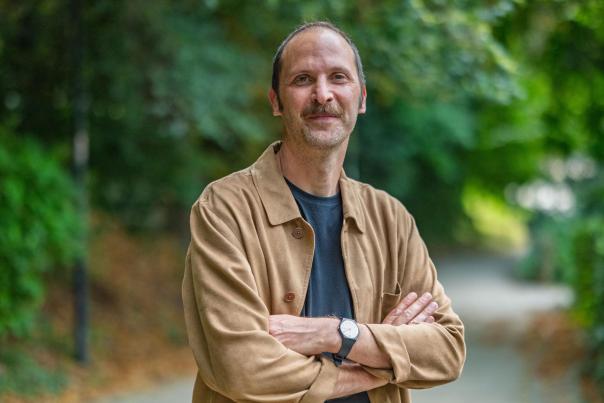
This critical function of the university presupposes strong independence. In Belgium, however, university funding is largely a matter for the political authorities. "Celane must not mean being placed under tutelage", warns Louis Carré. "Conducting critical research that doesn't satisfy short-term sponsors requires independence, including in terms of resources. We need a large number of researchers who can analyze different types of dynamics. The more we cut research funding, as is the case today, the fewer researchers we'll have and therefore the less capacity for independent analysis and diversity of perspectives, insists Vincent Jacquet.
The "Université en colère" movement, recently launched within the universities of the Wallonia-Brussels Federation, intends to denounce the effects of definancement. Its representatives are calling for "guarantee the conditions for the development of an open, independent, quality university accessible to the greatest number. Faced with the social, economic and political challenges of our time, and because other choices for society, and therefore budgets, are possible, it is more essential than ever to strengthen the institutions and players at the heart of knowledge production."
Between vigilance and commitment: a link to be reinvented
Democracy is therefore not limited to elections or institutions. It is based on collective vigilance, carried by citizens, knowledge... and the places where this knowledge is built. In this respect, universities are an essential link in the chain of democratic vitality. Provided it remains independent, accessible and open to society.
"Democracy is not just a matter of institutions. It's about citizens who bring it to life and organize themselves to assert their perspectives at different times", insists Vincent Jacquet. A clear invitation not to remain a spectator, but to participate, with lucidity and exigency, in the construction of a common democratic future.
On the same subject
- Artificial intelligence, a danger for democracy?
An academic year focused on democracy
Find the speech given by Rectrice Annick Castiaux at the 2025-2026 Academic Back-to-School Ceremony.

Cet article est tiré de la rubrique "Le jour où" du magazine Omalius #38 (Septembre 2025).

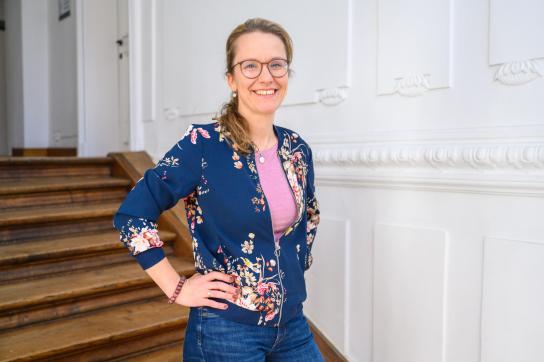
Taking into account the family situation of members of parliament: a major challenge for the future
Taking into account the family situation of members of parliament: a major challenge for the future
Reconciling family life and a political career in the European Parliament poses major challenges, particularly for MEPs with young children. This is demonstrated by Elena Frech, researcher at the University of Namur, in her recent research on work-life balance in European institutions.
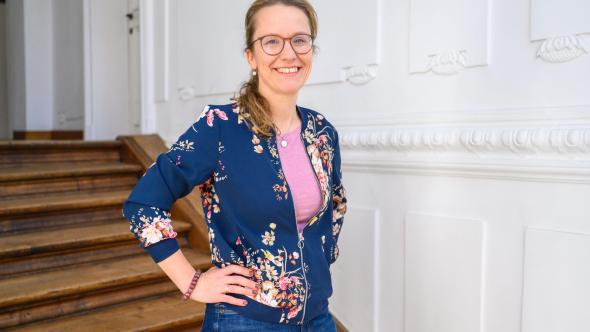
According to Elena Frech, member of the Transitions and of the Department of Social Sciences, and Communication (Faculty EMCP), the lack of parenting Members of the European Parliament, and in particular mothers and young parents, has a direct impact on political decisions. "Parents see the world differently and, if there are fewer parents in the Parliament, this will inevitably affect policy and the decisions taken," she explains in an interview with EUobserver.
The researcher highlights the difficulties faced by MEPs in reconciling their mandate and family life. Between long working hours, travel between Strasbourg, Brussels and their constituencies, as well as the absence of formal parental leave, many elected representatives are forced to curtail or interrupt their political careers. "The absence of a parental leave policy, combined with a demanding schedule, has led some MPs not to stand for re-election in 2024," adds Elena Frech.
The European Parliament currently provides neither maternity nor paternity leave for its members. According to Elena Frech, this lack of official recognition of parental leave increases the pressure on parent MEPs. "Their party loses a vote, because parents on leave cannot be replaced for the vote. So the pressure to return is very strong" (EUobserver).
An essential debate for the future of European institutions
Elena Frech's research highlights a structural problem within the European institutions, which limits the diversity and representation of parents, particularly women, in the European Parliament. Her work raises a fundamental question: how can internal regulations be adapted to take better account of the reality of MEPs' families? A key issue for the future of European democracy.
Credits : the interview passages in this article are taken from an interview with Elena Frech conducted by EUobserver.
Source for EUobserver article : Bonneyrat, S. (2025).Is the EU Parliament still letting down female MEPs with children? EUobserver.
Find the scientific studies on which the EUobserver article is based:
Frech, Elena and Sophie Kopsch.2024. "Beyond Rhetoric: The European Parliament as a Workplace for Parents and Current Reform Debates", Politics and Governance 12.
Frech, Elena.2024. Mothers, parliamentarians, leaders: career factors influencing women's representation in the European Parliament - a case study of German parliamentarians.European Politics and Society, 1–19.
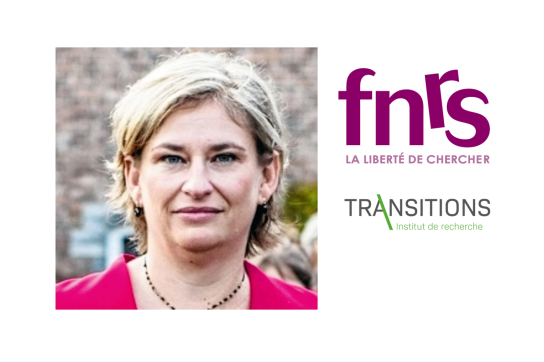
FNRS 2024 calls: Thinking about work after legal retirement age
FNRS 2024 calls: Thinking about work after legal retirement age
Nathalie Burnay, professor in the EMCP Faculty and member of the TRANSITIONS Institute, has just been awarded PDR funding from the F.R.S-FNRS for her BRIDGE-EXT project. In collaboration with the Haute Ecole de Travail Social de Lausanne, she will focus on the situations and reasons that contribute to the continuation of professional activity after the legal retirement age.
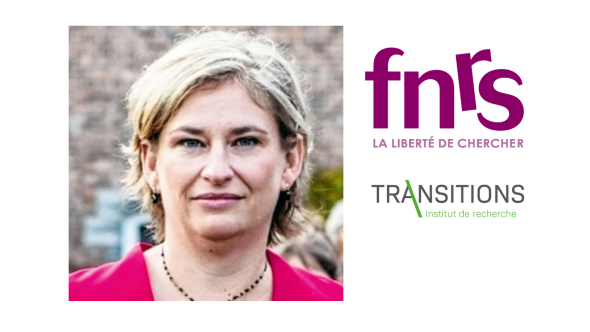
At a time when various governments are trying to get us to work until we're 67, some workers are continuing to work past the legal retirement age.
The BRIDGE-EXT project, funded by the PDR du F.R.S-FNRS, aims to gain a better understanding of these professional situations by questioning both the individual and relational reasons that contribute to continuing to work, but also the structural dynamics involved. It is for the latter reason that the researchers have developed a partnership with colleagues in French-speaking Switzerland, under the supervision of Prof. Valérie Hugentobler of the Haute Ecole de Travail Social de Lausanne (HETSL/HES-SO).
The interest of this collaboration lies in understanding post-retirement work according to differentiated political contexts where retirement systems are both fairly comparable, but also very different. How, then, are we to apprehend this work, which poses both the question of life choices and the constraints, particularly financial, that weigh on individuals today?
The research team will be made up of sociologists and anthropologists specializing in issues of aging at work. Amélie Pierre will be hired at UNamur to work on these issues, which are at the heart of current affairs.
Mini CV
Nathalie Burnay is a sociologist and full professor at the University of Namur (EMCP Faculty). For many years, she has been working on the analysis of end-of-career and ageing at work from a disciplinary and interdisciplinary perspective. She approaches these issues from an analysis of social policies, changing working conditions and normative transformations in the contemporary world.
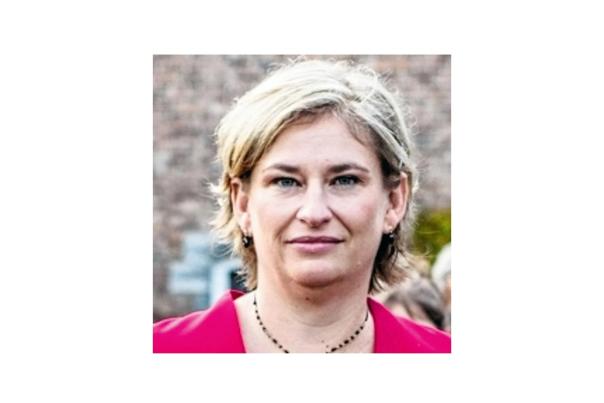
In recent years, her scientific horizons have opened up to questions related to transmissions, life courses and temporalities, as well as to the sociology of emotions.
She is also a member of the Institut TRANSITIONS - Pôle Transitions et âges de la vie. This cluster studies the way in which these life courses are recomposed according to new social constraints and normative imperatives. It focuses on the fragility of populations at all stages of life, and also on the repercussions of political measures and mechanisms on the construction of life courses. It brings together researchers from different disciplinary backgrounds who analyze both the normative transformations affecting life courses and life-age transitions.
FNRS, la liberté de chercher
Chaque année, le F.R.S.-FNRS lance des appels pour financer la recherche fondamentale. Il a mis en place une gamme d'outils permettant d’offrir à des chercheurs, porteurs d’un projet d’excellence, du personnel scientifique et technique, de l’équipement et des moyens de fonctionnement.


Citizens' assemblies: gimmicks or levers for change?
Citizens' assemblies: gimmicks or levers for change?
For the past fifteen years or so, participatory and deliberative democracy mechanisms have been multiplying: participatory budgets, popular consultations, citizens' panels, and so on. Vincent Jacquet, a political scientist and coordinator of the European research project Citizen Impact (ERC project, European Research Council), studies the impact of these devices from the point of view of governors and citizens.

The findings are nuanced: "Unsurprisingly, today's elected representatives are very much rooted in an electoral and representative logic. Many are wary of citizens' ability to get involved beyond electoral processes. Obviously, there are differences between elected representatives and political parties. To simplify, we can say that the further left a party is and the younger its elected representatives are, the more open they will be to extra-electoral mechanisms", explains Vincent Jacquet.
So, the question is whether those in power are really integrating these citizen processes into their political decisions. "In politics, things change slowly. So it's not surprising that we're not seeing major reforms in the short term. But that doesn't mean the results aren't taken into account," nuances the political scientist. In some cases, the recommendations of citizens' assemblies feed into public policy. In others, they go unheeded. He points out, however, that the lack of impact has less to do with a desire for manipulation on the part of elected officials, than with the fact that participation is thought of alongside decision-making circuits.
To strengthen their impact, three levers are identified by the researcher:
- Inscribe assemblies over time to feed public action over the long term.
- Define upstream the timetable and the way in which decisions will be made in relation to citizens' recommendations.
- Guarantee support for the recommendations by politics or civil society.
The Irish example is often cited. Citizens' assemblies paved the way for referendums on marriage for all and abortion. "It was the interaction between the deliberations of an assembly drawn by lot, social mobilization and the organization of a referendum that enabled these reforms to be carried through."
A reminder that these devices do not replace representative democracy, but can enrich it, provided they do not remain at the symbolic stage.
On the same subject
An academic year focused on democracy
Find the speech delivered by Rectrice Annick Castiaux at the 2025-2026 Academic Back-to-School Ceremony.

Cet article est tiré de la rubrique "Le jour où" du magazine Omalius #38 (Septembre 2025).


University and democracy: a living, sometimes threatened, link
University and democracy: a living, sometimes threatened, link
Trust of traditional political institutions and elected representatives, rise of authoritarian logics, definition of public services... Democracy today seems to be going through a turbulent zone. What role does the university play in this context? To shed light on this question, we interviewed four researchers from different disciplines: educationalist Sephora Boucenna, philosopher Louis Carré, political scientist Vincent Jacquet and legal scholar Aline Nardi. Their contrasting views sketch out the contours of an issue that is more topical than ever: thinking about and defending the link between university and democracy.

Democracy is by no means a fixed concept. It is the subject of debate, especially today. Louis Carré, Director of the Department of Philosophy and member of the Espace philosophique de Namur (Institut ESPHIN), proposes a three-dimensional definition: a political regime, a state of law and a way of forming society.
.The concept of democracy: between people power and centralization
"Etymologically, democracy is a political regime that consists in giving power to the people," he reminds us. "Our Western democracies today are based on the idea that the people are sovereign, without governing directly. From this arises a tension between ideal democracy and real democracy."Vincent Jacquet, professor in the Department of Social, Political and Communication Sciences and president of the Transitions Institute supports the point: "Democracy is an ideal of citizen self-government, but it is in tension with more centralizing, authoritarian logics. [...] Our political systems are crisscrossed by these different tensions, with both authoritarian logics increasingly present, including in our own country, and logics of participation that are sometimes accompanied by a great deal of hope and disappointment too."
The second pillar according to Louis Carré: the rule of law. Democracy guarantees the fundamental rights of all citizens through the constitution. But here again, beware of paradoxes: "One could indeed imagine laws passed by a majority of representatives or by a referendum, but which contravene fundamental rights" the philosopher stresses. Democracy cannot therefore be summed up by the majority principle alone.
Finally, democracy is also a way of forming society. It is based on real pluralism: diversity of opinions, beliefs and values. "This presupposes the existence of a relatively autonomous public space in the face of the power in place, which at times challenges the decisions taken by the governments that have been elected,"insists Louis Carré.
As such, citizens' distrust of politics is not necessarily a symptom of democratic crisis. It may even be a sign of its vitality, as Vincent Jacquet explains:"The fact that citizens are critical of their government is not necessarily negative because, in a democracy, citizens must be able to control the actions of those in power."

Training the governors... and the governed
In this context, what is the university's responsibility? Louis Carré begins by reminding us of a simple fact: a large proportion of our elected representatives have passed through university benches. But its teaching mission doesn't stop there. "It's about training enlightened citizens, not just rulers. Universities must offer quality higher education, open to as many people as possible", he asserts.
"Democracy does indeed presuppose citizens capable of debating, reflecting, problematizing issues", adds Sephora Boucenna, Dean of the Faculty of Education and Training Sciences and member of UNamur's Institut de Recherches en Didactiques et Éducation (IRDENA). It's all about training reflective minds, capable of questioning their times.
Training reflective teachers for critical citizens
Universities also train those who, tomorrow, will educate future generations: teachers. And here again, democracy is at stake.
"Our mission is to train reflective teachers who, in turn, will teach their students to think critically"insists Sephora Boucenna. This requires in-depth work on analyzing practices, collective construction and learning to debate, from initial teacher training through to in-service training.

Producing and disseminating knowledge... in complete independence
In addition to teaching, universities also have a research and social service mission. It produces knowledge that can enlighten public policy, but also question it. This critical function presupposes real independence from politics. "To analyze democratic mechanisms with lucidity, including those that governments put in place, the university must retain its freedom of research and speech," insists Vincent Jacquet.
Louis Carré goes further: "Like the press, the university is a form of counter-power in the public space". He also points out that "there is a confusion between freedom of opinion and academic freedom. Academic knowledge goes through a series of verification, experimentation and discussion procedures within the scientific community. This gives it a robustness that is not that of an opinion, a value, a belief."

This critical function of the university presupposes strong independence. In Belgium, however, university funding is largely a matter for the political authorities. "Celane must not mean being placed under tutelage", warns Louis Carré. "Conducting critical research that doesn't satisfy short-term sponsors requires independence, including in terms of resources. We need a large number of researchers who can analyze different types of dynamics. The more we cut research funding, as is the case today, the fewer researchers we'll have and therefore the less capacity for independent analysis and diversity of perspectives, insists Vincent Jacquet.
The "Université en colère" movement, recently launched within the universities of the Wallonia-Brussels Federation, intends to denounce the effects of definancement. Its representatives are calling for "guarantee the conditions for the development of an open, independent, quality university accessible to the greatest number. Faced with the social, economic and political challenges of our time, and because other choices for society, and therefore budgets, are possible, it is more essential than ever to strengthen the institutions and players at the heart of knowledge production."
Between vigilance and commitment: a link to be reinvented
Democracy is therefore not limited to elections or institutions. It is based on collective vigilance, carried by citizens, knowledge... and the places where this knowledge is built. In this respect, universities are an essential link in the chain of democratic vitality. Provided it remains independent, accessible and open to society.
"Democracy is not just a matter of institutions. It's about citizens who bring it to life and organize themselves to assert their perspectives at different times", insists Vincent Jacquet. A clear invitation not to remain a spectator, but to participate, with lucidity and exigency, in the construction of a common democratic future.
On the same subject
- Artificial intelligence, a danger for democracy?
An academic year focused on democracy
Find the speech given by Rectrice Annick Castiaux at the 2025-2026 Academic Back-to-School Ceremony.

Cet article est tiré de la rubrique "Le jour où" du magazine Omalius #38 (Septembre 2025).


Taking into account the family situation of members of parliament: a major challenge for the future
Taking into account the family situation of members of parliament: a major challenge for the future
Reconciling family life and a political career in the European Parliament poses major challenges, particularly for MEPs with young children. This is demonstrated by Elena Frech, researcher at the University of Namur, in her recent research on work-life balance in European institutions.

According to Elena Frech, member of the Transitions and of the Department of Social Sciences, and Communication (Faculty EMCP), the lack of parenting Members of the European Parliament, and in particular mothers and young parents, has a direct impact on political decisions. "Parents see the world differently and, if there are fewer parents in the Parliament, this will inevitably affect policy and the decisions taken," she explains in an interview with EUobserver.
The researcher highlights the difficulties faced by MEPs in reconciling their mandate and family life. Between long working hours, travel between Strasbourg, Brussels and their constituencies, as well as the absence of formal parental leave, many elected representatives are forced to curtail or interrupt their political careers. "The absence of a parental leave policy, combined with a demanding schedule, has led some MPs not to stand for re-election in 2024," adds Elena Frech.
The European Parliament currently provides neither maternity nor paternity leave for its members. According to Elena Frech, this lack of official recognition of parental leave increases the pressure on parent MEPs. "Their party loses a vote, because parents on leave cannot be replaced for the vote. So the pressure to return is very strong" (EUobserver).
An essential debate for the future of European institutions
Elena Frech's research highlights a structural problem within the European institutions, which limits the diversity and representation of parents, particularly women, in the European Parliament. Her work raises a fundamental question: how can internal regulations be adapted to take better account of the reality of MEPs' families? A key issue for the future of European democracy.
Credits : the interview passages in this article are taken from an interview with Elena Frech conducted by EUobserver.
Source for EUobserver article : Bonneyrat, S. (2025).Is the EU Parliament still letting down female MEPs with children? EUobserver.
Find the scientific studies on which the EUobserver article is based:
Frech, Elena and Sophie Kopsch.2024. "Beyond Rhetoric: The European Parliament as a Workplace for Parents and Current Reform Debates", Politics and Governance 12.
Frech, Elena.2024. Mothers, parliamentarians, leaders: career factors influencing women's representation in the European Parliament - a case study of German parliamentarians.European Politics and Society, 1–19.

FNRS 2024 calls: Thinking about work after legal retirement age
FNRS 2024 calls: Thinking about work after legal retirement age
Nathalie Burnay, professor in the EMCP Faculty and member of the TRANSITIONS Institute, has just been awarded PDR funding from the F.R.S-FNRS for her BRIDGE-EXT project. In collaboration with the Haute Ecole de Travail Social de Lausanne, she will focus on the situations and reasons that contribute to the continuation of professional activity after the legal retirement age.

At a time when various governments are trying to get us to work until we're 67, some workers are continuing to work past the legal retirement age.
The BRIDGE-EXT project, funded by the PDR du F.R.S-FNRS, aims to gain a better understanding of these professional situations by questioning both the individual and relational reasons that contribute to continuing to work, but also the structural dynamics involved. It is for the latter reason that the researchers have developed a partnership with colleagues in French-speaking Switzerland, under the supervision of Prof. Valérie Hugentobler of the Haute Ecole de Travail Social de Lausanne (HETSL/HES-SO).
The interest of this collaboration lies in understanding post-retirement work according to differentiated political contexts where retirement systems are both fairly comparable, but also very different. How, then, are we to apprehend this work, which poses both the question of life choices and the constraints, particularly financial, that weigh on individuals today?
The research team will be made up of sociologists and anthropologists specializing in issues of aging at work. Amélie Pierre will be hired at UNamur to work on these issues, which are at the heart of current affairs.
Mini CV
Nathalie Burnay is a sociologist and full professor at the University of Namur (EMCP Faculty). For many years, she has been working on the analysis of end-of-career and ageing at work from a disciplinary and interdisciplinary perspective. She approaches these issues from an analysis of social policies, changing working conditions and normative transformations in the contemporary world.

In recent years, her scientific horizons have opened up to questions related to transmissions, life courses and temporalities, as well as to the sociology of emotions.
She is also a member of the Institut TRANSITIONS - Pôle Transitions et âges de la vie. This cluster studies the way in which these life courses are recomposed according to new social constraints and normative imperatives. It focuses on the fragility of populations at all stages of life, and also on the repercussions of political measures and mechanisms on the construction of life courses. It brings together researchers from different disciplinary backgrounds who analyze both the normative transformations affecting life courses and life-age transitions.
FNRS, la liberté de chercher
Chaque année, le F.R.S.-FNRS lance des appels pour financer la recherche fondamentale. Il a mis en place une gamme d'outils permettant d’offrir à des chercheurs, porteurs d’un projet d’excellence, du personnel scientifique et technique, de l’équipement et des moyens de fonctionnement.



